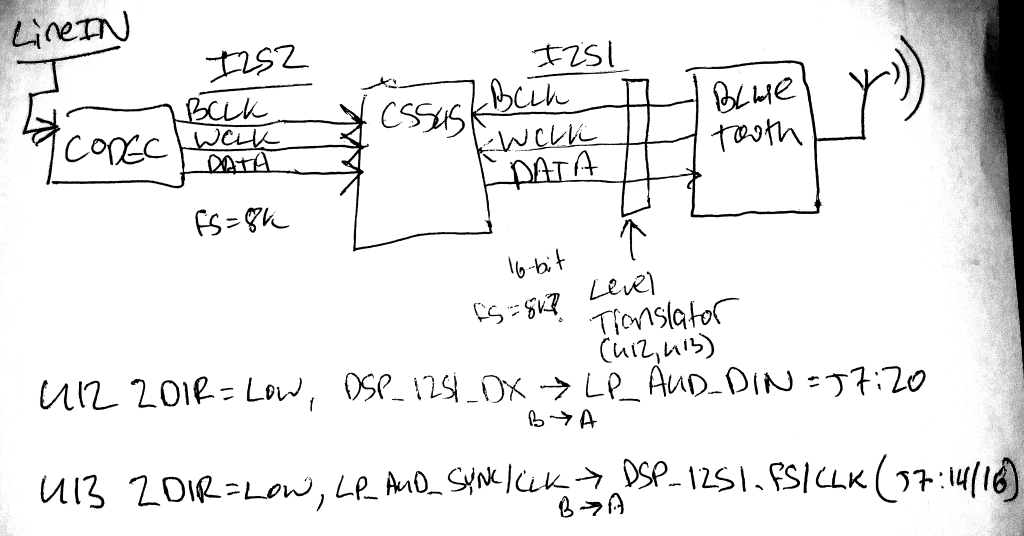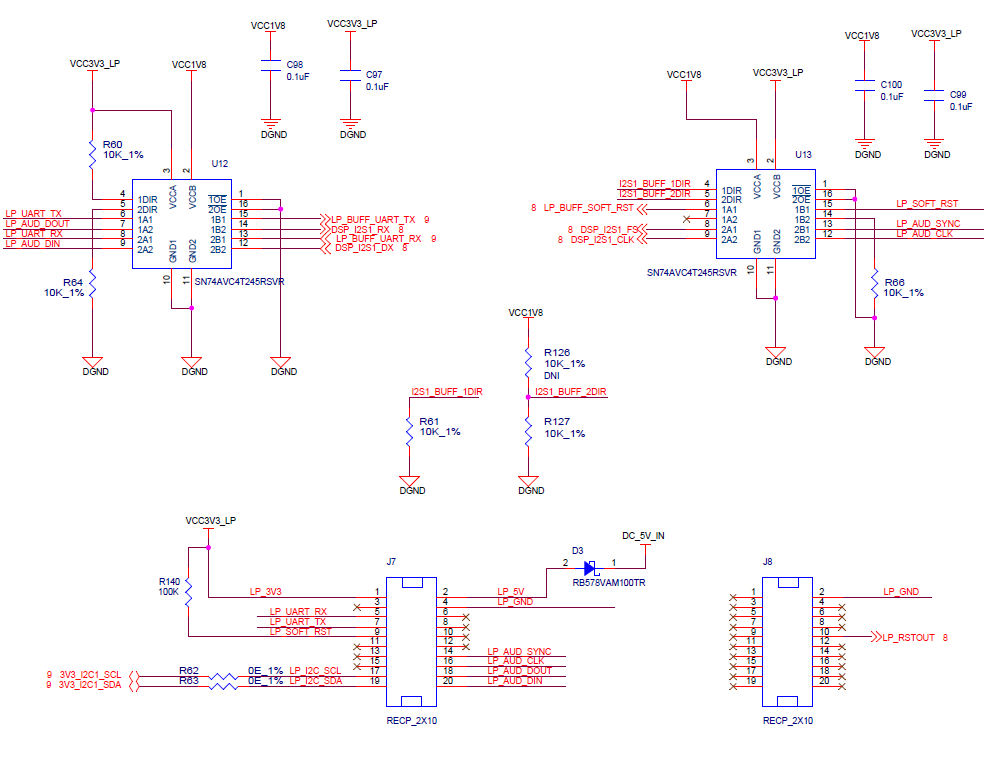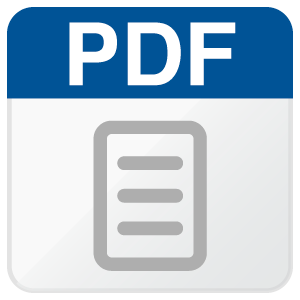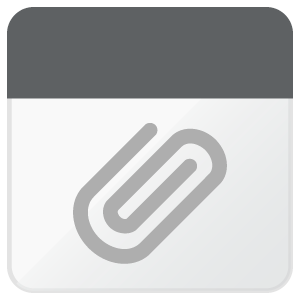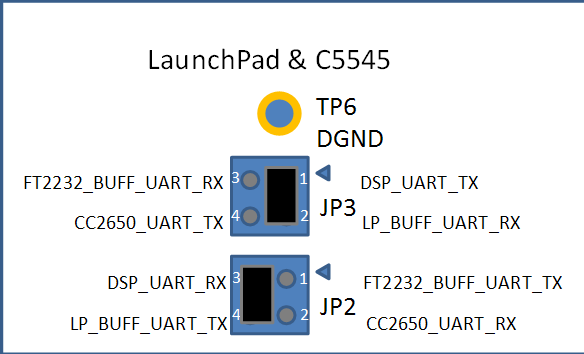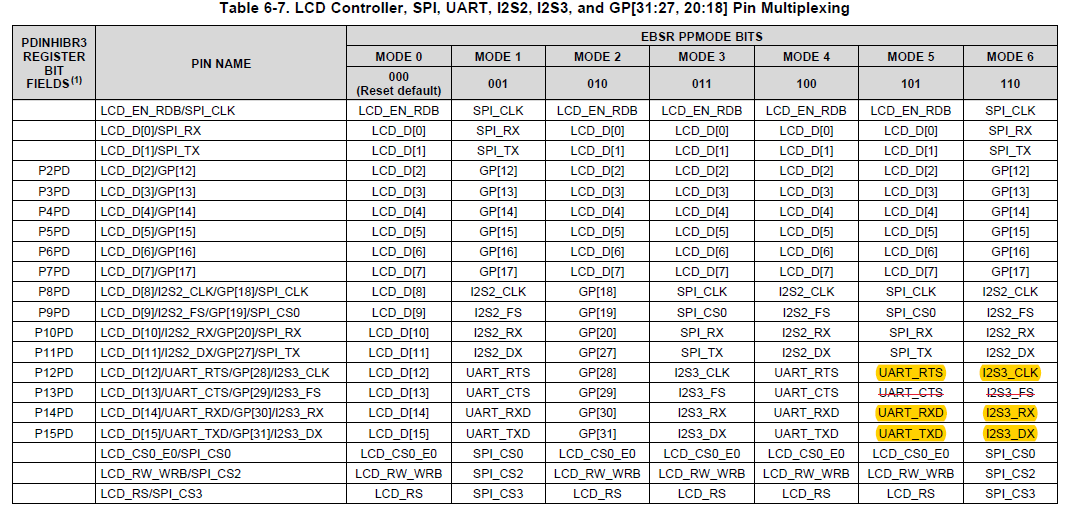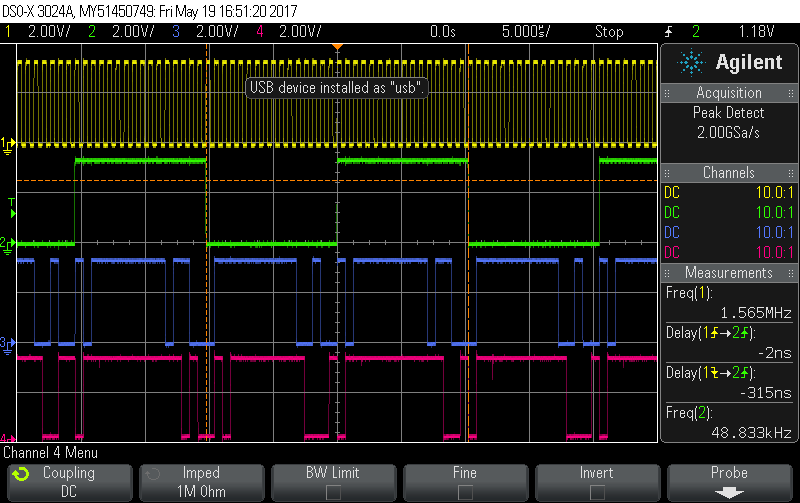Part Number: TMS320C5545
Tool/software: Code Composer Studio
Hi team, I’ve been try to resolve this issue for so long and yet no luck. I’m running a loopback code on my booster pack with line in input to the line in jack of booster pack and trying to transmit the dsp filtered data to a Bluetooth module which provides the bclk and I’m connecting the I2s audio output pins on the booster pack header. Also connecting the clock pin and fsync pin of booster pack pins to corresponding pins on my Bluetooth module. My Bluetooth module works fine as i tested giving the i2s input from a codec and it receiving perfectly. Additional details: im running my codec on booster pack at 8000hz. Please advise on how to resolve this issue. Thanks

